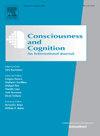沉浸在模拟的视觉幻觉中可以调节人类的高级认知。
IF 2
3区 心理学
Q2 PSYCHOLOGY, EXPERIMENTAL
引用次数: 0
摘要
致幻剂提供了对意识的有价值的见解,但理清它们对知觉和高级认知的因果影响是很重要的。虚拟现实(VR)和机器学习的技术进步使视觉幻觉的沉浸式模拟成为可能。然而,关于这些模拟的幻觉如何影响人类高级认知的综合实验数据是缺乏的。在这里,我们让人类参与者观看由DeepDream算法生成的VR全景视频和迷幻视频。与自然暴露相比,受试者在模拟迷幻暴露后表现出更低的任务转换成本,这与认知灵活性的增加是一致的。在单词和句子水平上,自然和模拟迷幻暴露在语言自动联想任务中无显著差异。至关重要的是,以视觉为基础的高级认知过程是通过接触模拟幻觉来调节的。我们的研究结果揭示了自下而上和自上而下的认知过程之间的相互依存关系,以及在没有药物干预的情况下意识状态的改变,可能为基础神经科学和临床应用提供信息。本文章由计算机程序翻译,如有差异,请以英文原文为准。
Immersive exposure to simulated visual hallucinations modulates high-level human cognition
Psychedelic drugs offer valuable insights into consciousness, but disentangling their causal effects on perceptual and high-level cognition is nontrivial. Technological advances in virtual reality (VR) and machine learning have enabled the immersive simulation of visual hallucinations. However, comprehensive experimental data on how these simulated hallucinations affects high-level human cognition is lacking. Here, we exposed human participants to VR panoramic videos and their psychedelic counterparts generated by the DeepDream algorithm. Participants exhibited reduced task-switching costs after simulated psychedelic exposure compared to naturalistic exposure, consistent with increased cognitive flexibility. No significant differences were observed between naturalistic and simulated psychedelic exposure in linguistic automatic association tasks at word and sentence levels. Crucially, visually grounded high-level cognitive processes were modulated by exposure to simulated hallucinations. Our results provide insights into the interdependence of bottom-up and top-down cognitive processes and altered states of consciousness without pharmacological intervention, potentially informing both basic neuroscience and clinical applications.
求助全文
通过发布文献求助,成功后即可免费获取论文全文。
去求助
来源期刊

Consciousness and Cognition
PSYCHOLOGY, EXPERIMENTAL-
CiteScore
4.30
自引率
8.30%
发文量
123
期刊介绍:
Consciousness and Cognition: An International Journal provides a forum for a natural-science approach to the issues of consciousness, voluntary control, and self. The journal features empirical research (in the form of regular articles and short reports) and theoretical articles. Integrative theoretical and critical literature reviews, and tutorial reviews are also published. The journal aims to be both scientifically rigorous and open to novel contributions.
 求助内容:
求助内容: 应助结果提醒方式:
应助结果提醒方式:


